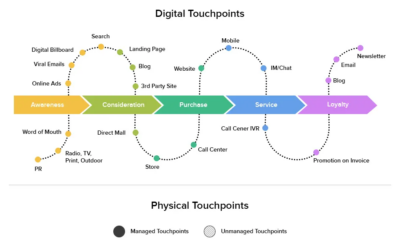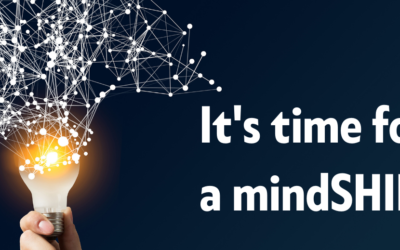Disruption is affecting our marketing organisations from the CMO to the intern. Not only is technology transforming the way we work, it’s challenging our processes, use of data, our teams, structures and the skills we need.
But disruption isn’t just a temporary change in the way we work. It is the “new normal”. As Chris Riddell suggests, this means that we need to refocus our efforts to not just cope with the shock of the new but to transform ourselves and our businesses to this new reality.
To understand digital disruption, it’s essential that we understand where its impacts lie. The “Five Cs” of digital disruption help us map disruption and address it to our advantage:
Disruption CREATES value
The old models of creating value still exist. The keep our organisations ticking over, generating revenue, keeping us in work and serving our customers. But increasingly, value is being created in new ways that owe nothing to the structures, processes and expectations of the business world. This new mode of value creation employs networks, builds connections and uses new forms of currency. Think of the way that Bitcoin has emerged to challenge existing regional, national and international currencies. Vital to this new form of value is understanding that it accrues not in the silo of the business but in the network in which the business operates.
Disruption transforms the way we CONNECT socially
Our social interactions were once dictated by our proximity to others. Digital disruption has removed the tyranny of distance allowing us to create deep and lasting relationships with others regardless of timezone and location. At the heart of this is the potential to CO-EXPERIENCE an event through technology. This is best understood through the rise of “live tweeting” of TV shows, conferences, online chats – but is being further disrupted by the next generation of video streaming tools like Meerkat and Periscope.
Disruption alters the way we engage CULTURALLY
Perhaps the most challenging aspect of digital disruption is the impact it makes on our cultures. This is not limited to “corporate culture” nor to the practice of art but reaches broadly across our institutions, legal and compliance systems and understanding of government. What does digital disruption mean for the music industry? How is it transforming the way we consume music, create it and share it? Who owns copyright and what does that even mean in a digitally disrupted world? And what of the privacy of the individual? The ownership of data and profile information? Digital disruption echoes across all these areas.
Disruption changes the way we CONDUCT business
Radical transparency is challenging the role of brands, business structures and even the shape of organisations. Do our processes and policies align with our business mission? Is our corporate purpose connected to shareholder value and customer experience? Do we have a “social license to operate” within our communities and what does it take to obtain and maintain it? And what about our employees? How to we attract and retain the right talent? How do we keep skills and capabilities current while continuing to invest in the right technology to improve productivity and customer experience?
Disruption CONSTRUCTS our thinking
Whether we realise it or not, disruption has been shaping our thinking for decades. Think of the way we now view high end devices such as smartphones as mid-range consumables – something to be used for a couple of years and replaced. Think of the way software can now be purchased on a monthly subscription rather than a multi-year on-premise license. And think of the way that we accept a freelance lifestyle, casualised work and the view the opportunity to sleep in a stranger’s spare room as a “holiday”. The disruptions that have been wrought on our business and industrial landscape has impacted our thinking and behaviour. This, in turn, changes all the above – the way we think and behave in business, socially, culturally and vitally HOW we understand value.




